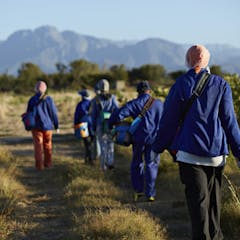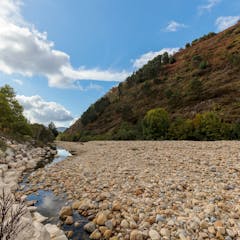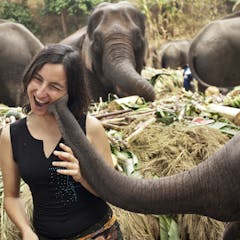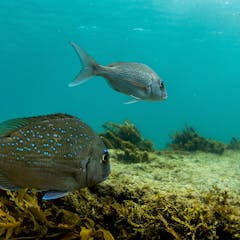
Artikel-artikel mengenai Tourism
Menampilkan 1 - 20 dari 517 artikel

Fancy retreats and suites with sleep butlers and pillow menus are becoming big business. But do you really need to leave home for some shuteye?

The government has proposed raising the international visitor levy to $100. But first New Zealand needs a clear strategy about who it’s trying to attract, and in what numbers.

Global ocean temperatures have been at record highs almost daily for over a year, and economies are feeling the heat.

The singer’s home reflects the rags-to-riches trajectory that epitomizes the American Dream. Yet Presley and his estate were seen as not quite refined enough to reflect true upward mobility.

A leading driver of this seaweed invasion is pollution, carried down rivers and into the Atlantic Ocean from the continents.

Water is everywhere, but freshwater supplies are limited on many Caribbean islands. Rising demand and climate change are worsening water shortages for the people who live here.

Day trippers often use local resources without making any economic contribution.

Israel’s tourism industry has taken a hit since the start of the war, and it may never fully recover.

Mountain tourism brings revenues to Nepal but leaves a mess behind. Local and international groups are offering new cleanup strategies.

The cruising industry is two-faced: on the surface, cruises are convenient, exciting holidays with economic benefits. But lurking underneath are its environmental and social impacts.

The University of Cape Town’s new report on the impacts of climate change in South Africa found that heatwaves and water stress will affect jobs, deepen inequality, and increase gender-based violence.

As droughts become more widespread in tourist hotspots, research finds that timers in showers help tourists and university students shorten their showers and save water.

Even self-proclaimed ethical tourism programs can widen economic gaps and harm communities they claim to protect. Here are a few steps you can take as an ethical tourist.

Marine protection represents our best strategy to reverse declining biodiversity. But protected areas also provide a low-tech and cost-effective way for the fishing industry to safeguard stocks.

We analysed hundreds of selfies and found some people were shamed more than others.

A school tour often sits within the itinerary of a tour of southern Africa, or alongside wildlife tourism ventures.

Stress, poor pay and job insecurity are driving professional chefs away from the hospitality industry in Australia and New Zealand. Tourism is also feeling the impact of the looming skill shortage.

Do big sporting events such as the Olympics help boost tourist numbers in the long run? It all depends on where they take place, according to research.

With big events drawing a growing share of of tourism dollars, F1 offers a potential glimpse of the travel industry’s future.

Black travelers want the tourism industry to recognize their full identity. That will require more than procedural checkboxes and targeted advertising.
